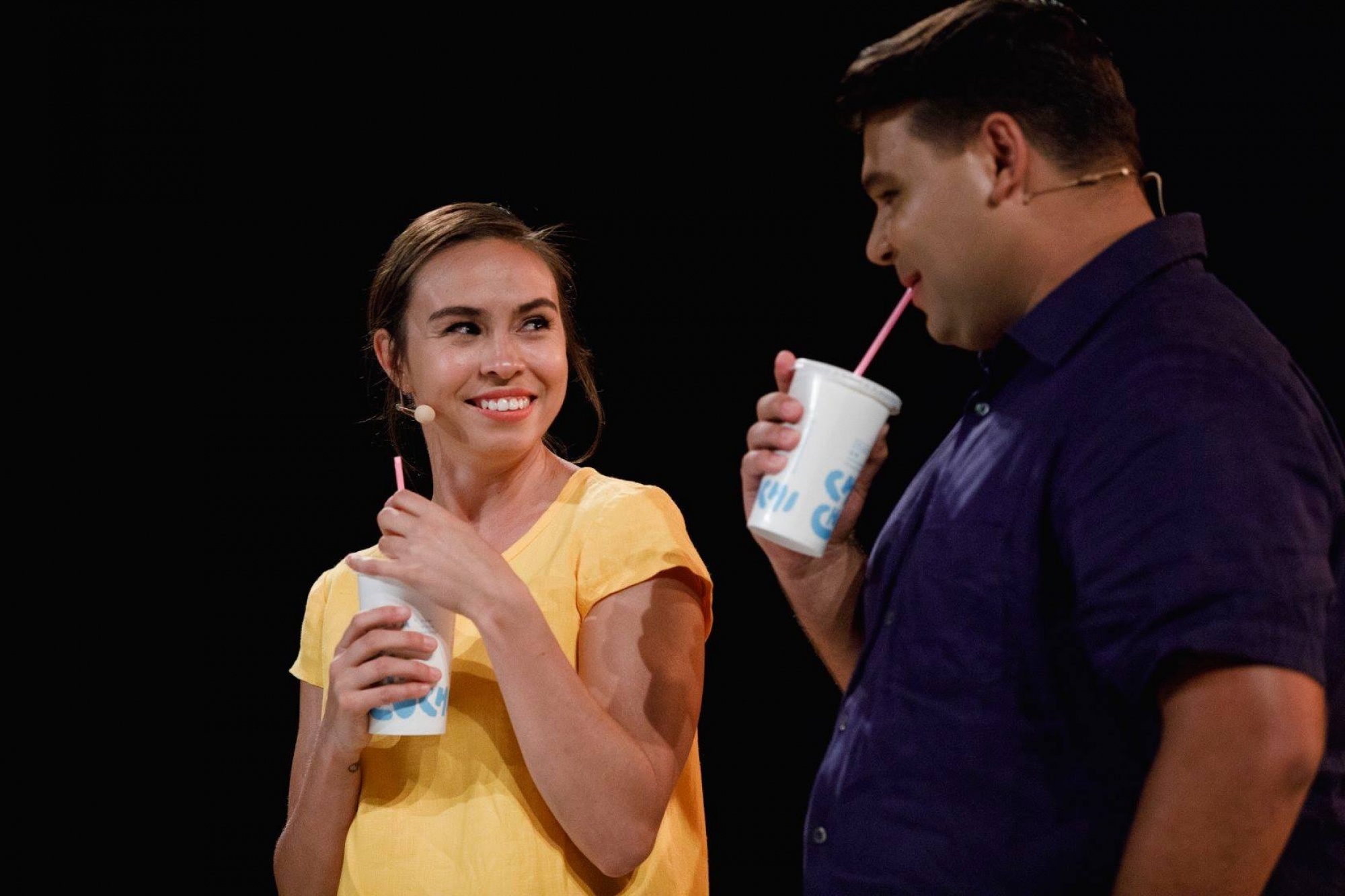Our Town, presented by Black Swan Theatre Company, is the latest re-imagining of Thornton Wilder’s tale of quaint 1900’s life in the fictional town of Grover’s Corners. The staging of the play outdoors in the State Theatre Centre Courtyard, with its backdrop of
painted steel and naked concrete, was the perfect environment for a production that sets out to juxtapose today with then.
Amongst this urban environment,
the audience was met with an opening scene visually scarce, composed only of two tables complete with chairs, and a narrator dressed in blue. We were required to imagine the scenery, a task not at all begrudged as our dear blue narrator lovingly described the sleepy town and its rolling hills, his gentle orations complemented by the sweet sounds of cheery birds and wind delicately ambling through trees and hilltops, all thanks to the utilitarian headphones provided.
There was a gimmick involved in this performance, in that many of the characters were played by individuals that reflect that role, an actual doctor in the role of Dr. Gibbs being the easy example. Any hesitancy I might have had going in was soon dispelled, as the performance of each actor was genuine, with any slight stumble or misspoken word handled comfortably, with all the grace of old friends conversing.
This tone of comfortable friendliness so well set by the supporting cast was further emphasised by the leads Ian Michael and Abbie-lee Lewis; their portrayal of the young lovers George and Emily conveyed a legitimate sense of universal aspirations and anxieties that one may struggle against.
From the end of the second act onwards, the play dropped its affable, conversational tone as a choir enveloped in a warm golden light performed a dreamy rendition of Cher’s Believe – a highlight of the show. The stage, however, was now bereft of mirth, awash instead with an unwelcoming blue reflected upon the pallid faces of our characters – who, having passed away, were seated row upon row, decrepit and defeated, serving as both shadows of the resigned dead and the tombstones for their place of . An unpleasant scene played out here, of the fallen Emily reliving her 12th birthday, in and amongst the dead, while the living, uncannily, refused to ever quite look at Emily, which left a bitter taste of ostracization and revealed the darker side of cute, small and friendly towns. The final scene played out, as dead Emily stood tall with her grave at her heels, while broken George wept dramatically in the dirt. We learnt that the heartbreaking tale of dreary life in an old American town is comprised of the same battles we face today; performed by Australians whose lives aren’t that different from the characters they embody, or from those of the audience, or those currently reading.
All the while, the odour and din of Perth nightlife threatened to break through the veil of imagination that maintained Our Town as simply a story, with sirens from the nearby street audible at stages of the performance, even through the headphones provided. Somehow, though, this added to the sense of authenticity communicated by the characters, as their words told of a tale we all experience. For who has not loved? And who does not know the loss of that love? It was about the people of Perth as much as it was about anyone from anywhere, but significantly it had been presented to us by our own people, poignantly, and endearingly. Our Town loved its audience, and we it.
4/5 stars
Words by Jacob Meredith- Bell

